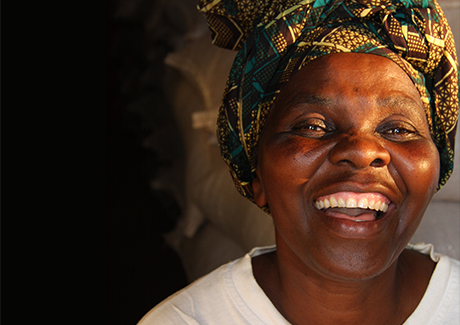Celebrating International Day of Rural Women
14/10/14
Providing support to help small-holder women farmers remains an integral part of Irish Aid’s hunger reduction agenda.
Wednesday the 15th of October is International Day of Rural Women, which highlights the vital role that women play in rural communities in the developing world. Many of these women engage in subsistence farming, which feeds their families and combats hunger.
Providing support to help small-holder women farmers remains an integral part of Irish Aid’s hunger reduction agenda. Throughout 2013, Irish Aid supported a range of partners including governments, civil society organisations, research institutions and multilateral organisations to improve women’s access to agricultural resources, services and markets.
In 2013, Irish Aid supported the National Smallholder Farmer’s Association of Malawi to spread conservation agriculture knowledge among 37,589 farmers, of which 53% are women. In addition to building knowledge, it also provided women farmers with advice on how to achieve better prices in both domestic and global markets.
In Eritrea, Irish Aid supported Vita’s Fuel Efficiency, Forestry Nutrition and Enterprise Development Project, which helped women improve food security and livelihoods from their forestry resources. Vita installed 12,177 fuel efficient stoves in rural households, and trained 20,000 women on the cooking of Moringa, a nutritious forest product.
In Tanzania, Irish Aid supported the Centre for Agriculture Bioscience International (CABI) to implement the Good Seed Initiative. This project focuses on improving access to African vegetable seeds and the production of same, which are often produced and sold by women. CABI supported women farmers in securing contracts with seed companies to produce certified African vegetable seed, thus boosting their income.
Furthermore, Irish Aid supported Farm Radio International to develop farmer-led, gender sensitive farm radio programmes across four countries in East Africa. The radio programmes, which are influenced by the needs of small women farmers, help to share knowledge on climate-change and nutrition sensitive agricultural practices that respond to their needs and interests.

